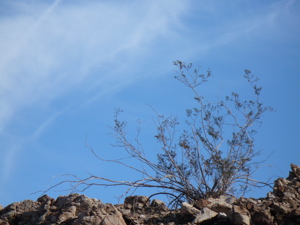
John Burroughs wrote: “Natural selection is just as good a god as any other. No matter what we call it, if it brought man to the head of creation and put all things (nearly all) under his feet, it is god enough for anybody.” That is an allusion to Genesis 1:26 and Psalm 8:6.
Can stoicism overcome the nihilism associated with Darwin’s view, overcome what Burroughs called “the cosmic chill.” I think Burroughs believed stoicism would warm us. He wrote that “most persons feel homeless and orphaned in a universe where no suggestion of sympathy and interest akin to our own comes to us from the great void.” And then, in a sentence that alludes to Psalm 8:3-4 and to Darwin’s great work, he wrote: “A providence of impersonal forces, the broadcast, indiscriminate benefits of nature, kind deeds where no thought of kindness is, well-being as the result of immutable law – all such ideas chill and disquiet us, until we have inured ourselves to them.”
Inure: this is the counsel of stoics.
Burroughs wrote these lines in a work he titled stoically, “Accepting the Universe: Essays in Naturalism” (1920.)
Thoreau had already famously written, “In wildness is the preservation of the world.” They are related, I think – wildness and natural selection. Still, I am not sure Thoreau meant it that way. Although some critics have suggested that wilderness or nature was Thoreau’s god, and that a Zen theme (which is a stoical theme) can be detected in some of his writings, I think wildness was not natural selection to him – wildness was the opposite of civilization. Thoreau was engaged in resistance, not acceptance. In wildness was hope to him.
For me, stoicism fails. Resistance is my path. Resistance, and, like the psalmist and Thoreau, hope that we will find sympathy, kindness in the wildness in or beyond the moon and the stars.

Leave a comment
Comments feed for this article